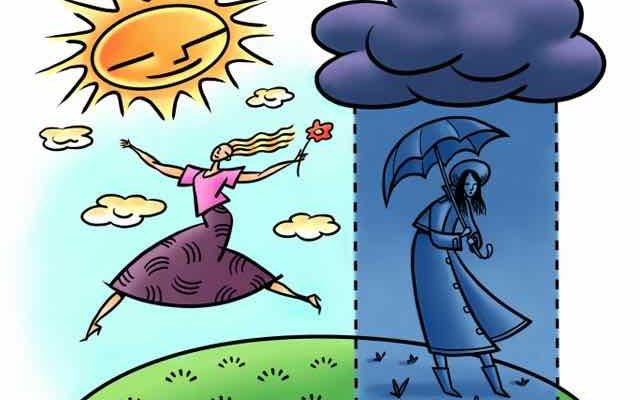Seasonal Affective Disorder - The Blue Tree Clinic

Seasonal Affective Disorder - The Blue Tree Clinic
London Training Psychologist Maddy Lykourgos from the Blue Tree Clinic describes more information about SAD…
As the winter months draw nearer and the days get shorter, it is inevitable that many of us will start to feel a shift in our mood. However, for approximately 8% of the UK population who have severe Seasonal Affective Disorder (SAD) and a further 21% that have many of the symptoms of SAD, it is a particularly debilitating time of year.
What are the common symptoms of SAD?
- Persistent low mood during a particular time of year (usually winter)
- Increased anxiety and an inability to cope with everyday stress
- Lethargy, trouble waking up in the morning and sleeping for longer than usual
- Loss of enjoyment in everyday activity
- Lack of interest in socialising
- Craving carbohydrates, eating more than usual and weight gain
What are the causes of SAD?
SAD, commonly known as seasonal depression or the ‘winter blues’, is a depressive illness that is categorised by a pattern of mood changes that link with specific times of year. In the UK, this is most commonly, but not exclusively, a lower mood in the winter time compared with spring or summer.
Although the exact cause of the disorder is still fairly unknown, it is believed that it stems from the reduced number of daylight hours, which may disrupt the internal clock. Subsequently, this may be linked with a decrease in the production of serotonin (a naturally occurring neurotransmitter that is closely linked with emotion-regulation) and an overproduction of melatonin (a hormone that helps control sleep patterns).
How to cope with SAD?
There are various treatments that have proven to be effective for SAD, such as light therapy. Research shows promising results for individuals that carry out their everyday activities in front of specialist light boxes. These emit a brighter light than typical bulbs and mimic sunlight without the harmful UV rays. Additionally, dawn-stimulating alarm clocks can help by gradually getting brighter as you need to wake up.
This can ease the process of waking up during the darker, winter mornings. Regular exercise, a healthy diet and reducing stress levels also help to boost your mood during this time.
What can The Blue Tree Clinic do for you?
If the symptoms of SAD are too difficult to manage alone, there are a number of treatments available from our highly-specialized team here at The Blue Tree Clinic. For example, there are a range of talking or psychological therapies such as cognitive behavioural therapy (CBT) and counseling.
It is beneficial to have a consultation with our Private Psychiatrist, who may be able to prescribe anti-depressant medications when therapy does not suffice.
For further information or for a consultation, please do not hesitate to contact us in order for us to customize a treatment plan that will be most beneficial to you.
References and Useful Links:
https://www.nhs.uk/conditions/seasonal-affective-disorder-sad/#when-to-see-your-gp
http://www.rcpsych.ac.uk/healthadvice/problemsdisorders/seasonalaffectivedisorder.aspx
http://www.sada.org.uk/index_2.php
http://www.sad.org.uk/buying-a-sad-light/
Source URL: https://thebluetreeclinic.com/seasonal-affective-disorder/